Are you looking to streamline your subcontractor collaboration? Arranging an on-site visit can be a vital step in ensuring that everyone is on the same page regarding project expectations and timelines. This friendly meeting not only fosters open communication but also helps to identify potential challenges early on. So, if you're ready to enhance your project's success, keep reading for a detailed letter template to coordinate your next site visit!

Purpose and objectives of the visit
An on-site visit to the construction project at [Project Name] aims to assess progress and ensure compliance with the established timeline and quality standards. The primary objectives include evaluating the efficiency of labor and resources utilized by subcontractors, reviewing adherence to safety protocols, and identifying potential bottlenecks that could delay further development. Observations will focus on key areas such as structural integrity, material availability, and alignment with architectural plans. The visit provides an opportunity for direct communication between project management and subcontractors to address any concerns immediately and facilitate a collaborative approach for future tasks. This assessment will help ensure the project remains on track and meets the expected completion date of [Completion Date], while also maintaining high standards of workmanship and safety.
Specific date and time for the visit
On-site visits conducted by subcontractors can be pivotal in ensuring project oversight and compliance with specifications. The pre-arranged date of September 15, 2023, at 10:00 AM establishes a structured timeline for assessment and coordination on-site. This visit location, the downtown construction site at 123 Main Street, is an area undergoing significant development. Essential stakeholders, including project managers and safety officers, will participate in this visit, ensuring comprehensive observations regarding adherence to schedules and safety protocols. The goal encompasses effective communication of project milestones and addressing any potential issues discovered during the evaluation.
Key personnel and contact information
During an on-site visit to assess project progress, key personnel, including project managers and site supervisors, play crucial roles in ensuring smooth communication and efficient operations. For example, John Smith, the project manager, can be reached at (555) 123-4567, facilitating immediate decision-making. Additionally, Sarah Johnson, the site supervisor, provides on-the-ground support and can be contacted at (555) 765-4321 for any site-specific queries. Proper coordination with these individuals enhances project flow and addresses challenges promptly. Timely communication is essential for aligning subcontractor efforts with overall project deadlines and expectations.
Safety and compliance requirements
During the on-site visit of subcontractors at construction sites, adherence to safety and compliance regulations is paramount. Project managers must ensure that all subcontractors are briefed on Occupational Safety and Health Administration (OSHA) regulations, which apply to both hazardous materials handling and personal protective equipment (PPE) provisions. Subcontractors must produce valid safety certifications and training documents, along with specific site safety plans tailored to the unique challenges of the project location. Clear communication regarding emergency procedures, such as evacuation routes and first-aid stations, is essential. Furthermore, compliance with local regulations, including licensing and inspections by the Department of Building and Safety, must be verified. Thorough documentation, including attendance records and incident reports, should be maintained to ensure accountability and promote a culture of safety throughout the duration of the project.
Checklist of tasks or areas to be reviewed
During the subcontractor on-site visit arrangement, a comprehensive checklist of tasks must be prepared to ensure all critical areas are effectively reviewed. Key areas include equipment inspection, specifically examining machinery like excavators and cranes, to assess operational integrity; safety compliance assessment, focusing on personal protective equipment (PPE) adherence among workers and overall site safety protocols; progress evaluation of ongoing construction phases, ensuring tasks like foundation laying, framing, or roofing are on schedule; quality control checks of materials used, such as concrete or steel beams, conforming to specified standards; and site communication protocols, confirming reporting structures and emergency procedures are clearly established. These tasks ensure a thorough evaluation of the project status and adherence to deadlines.

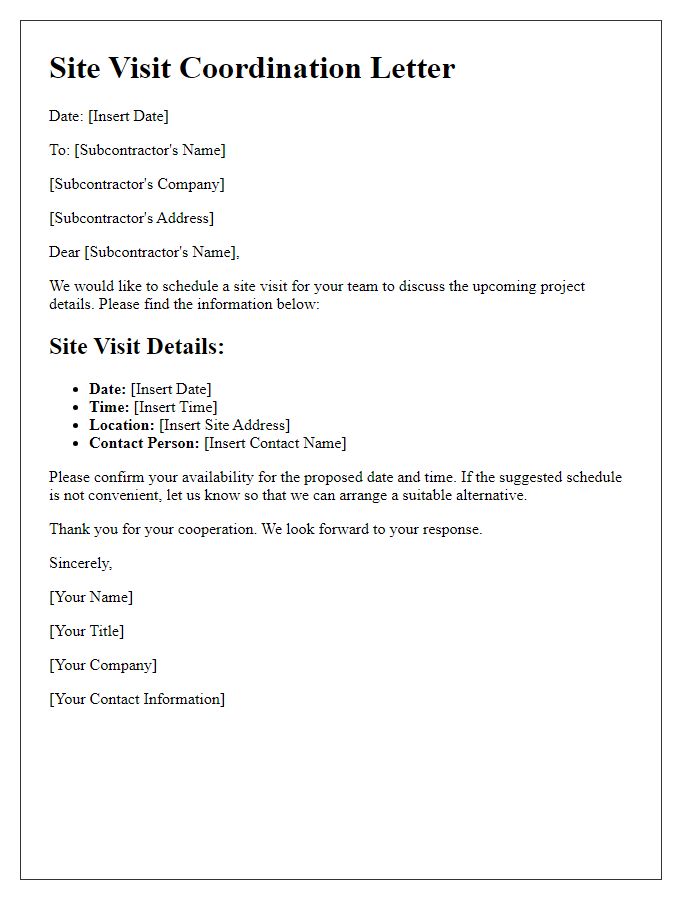
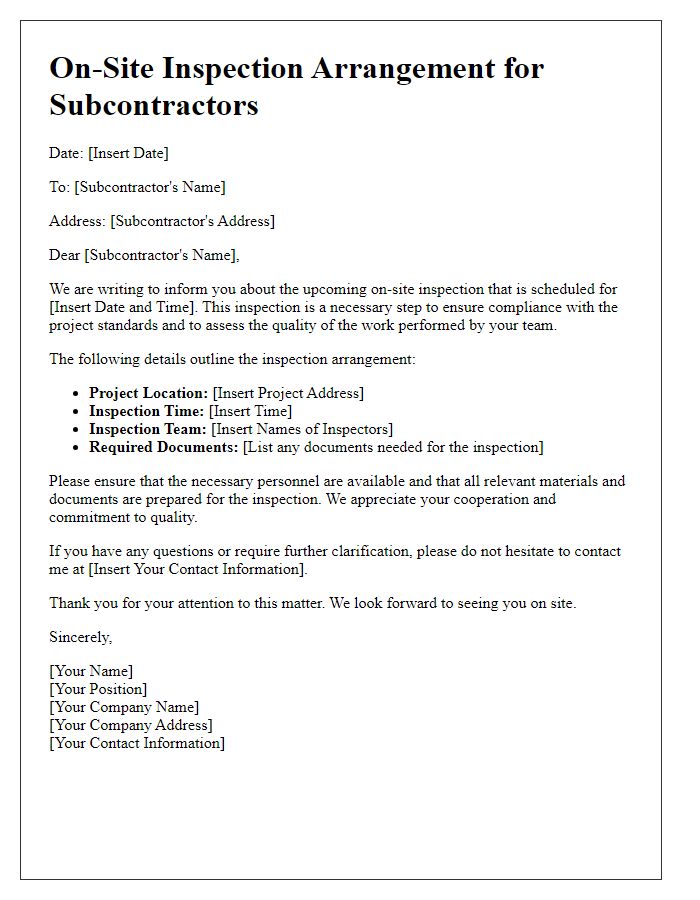
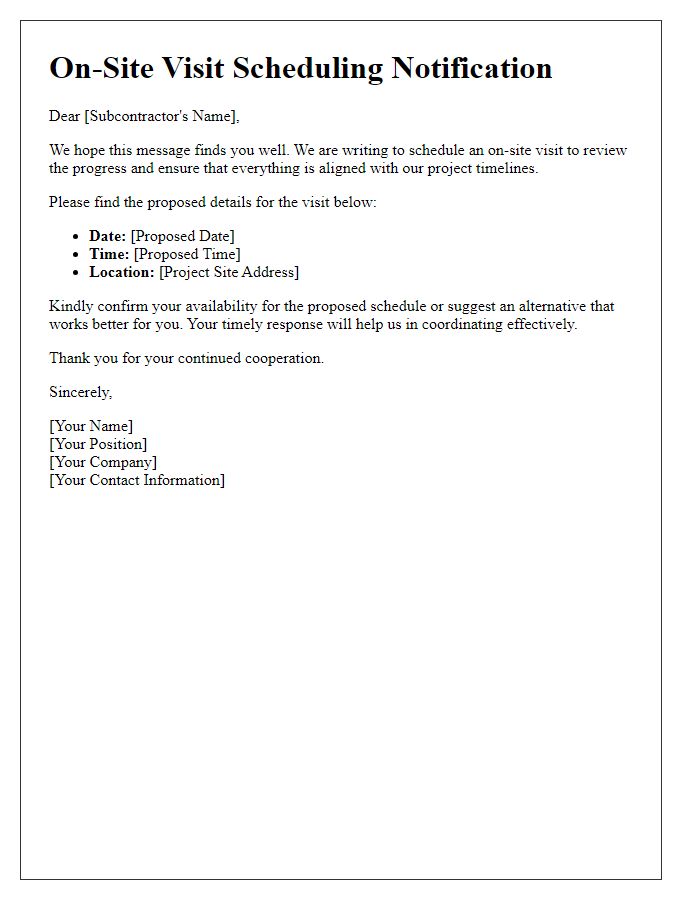
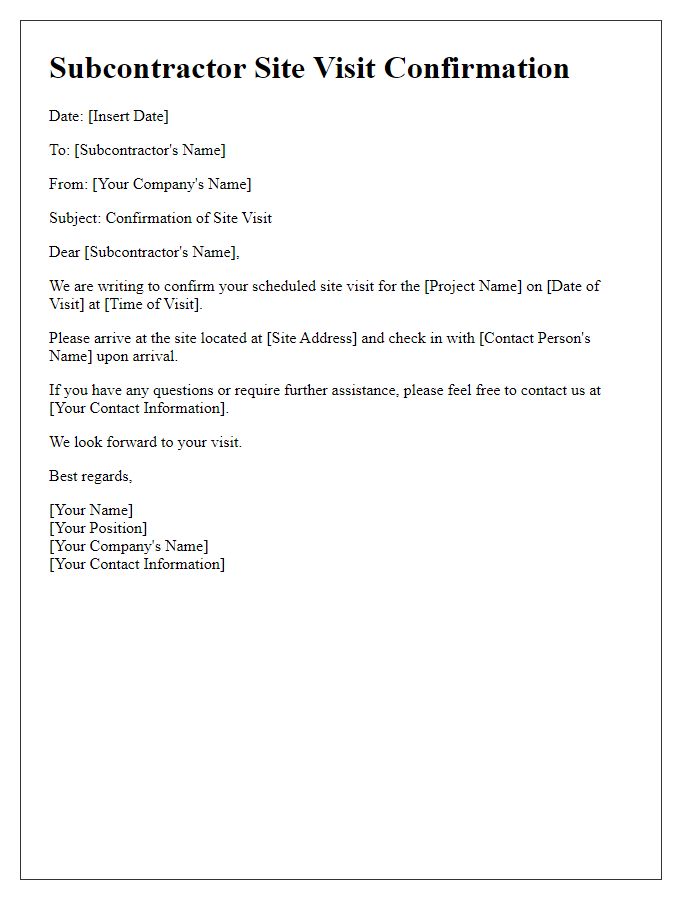
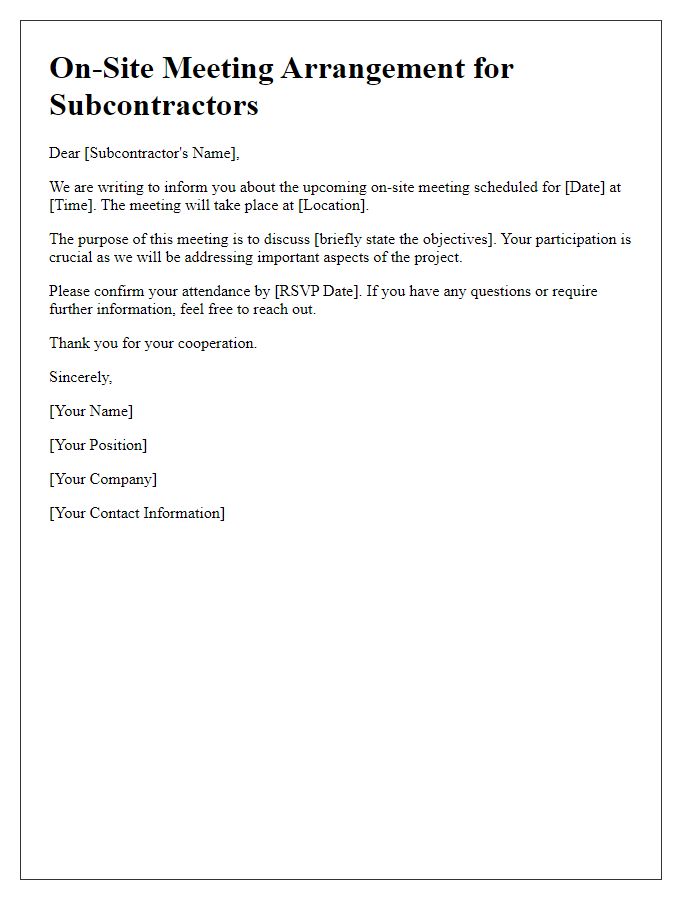
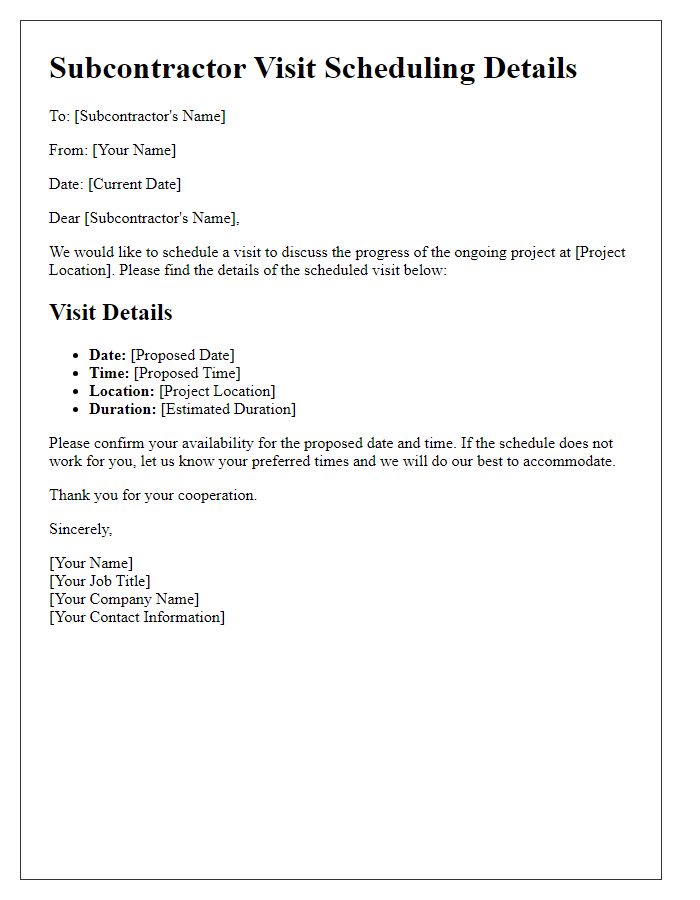
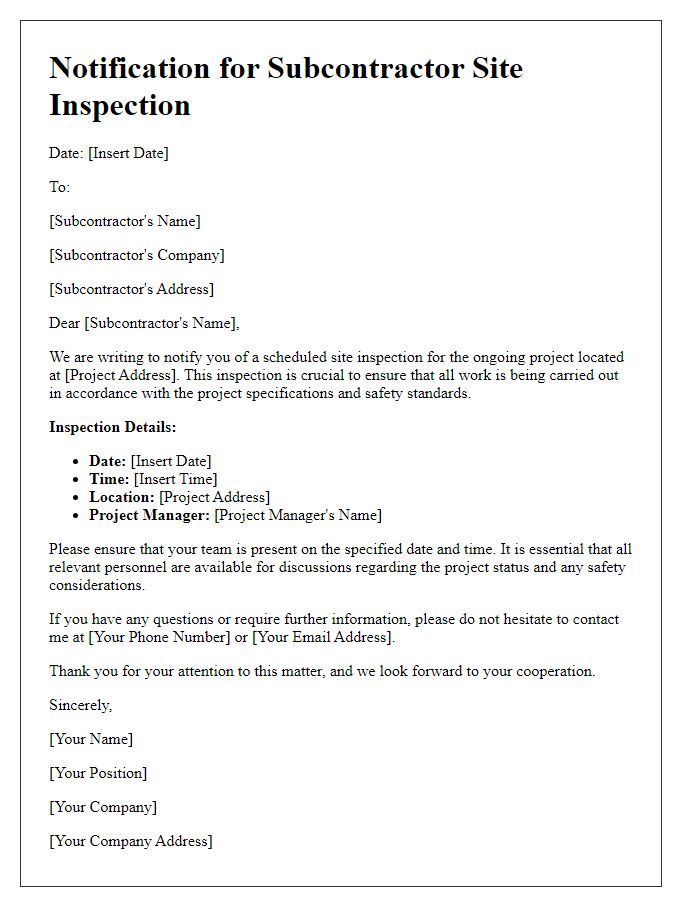
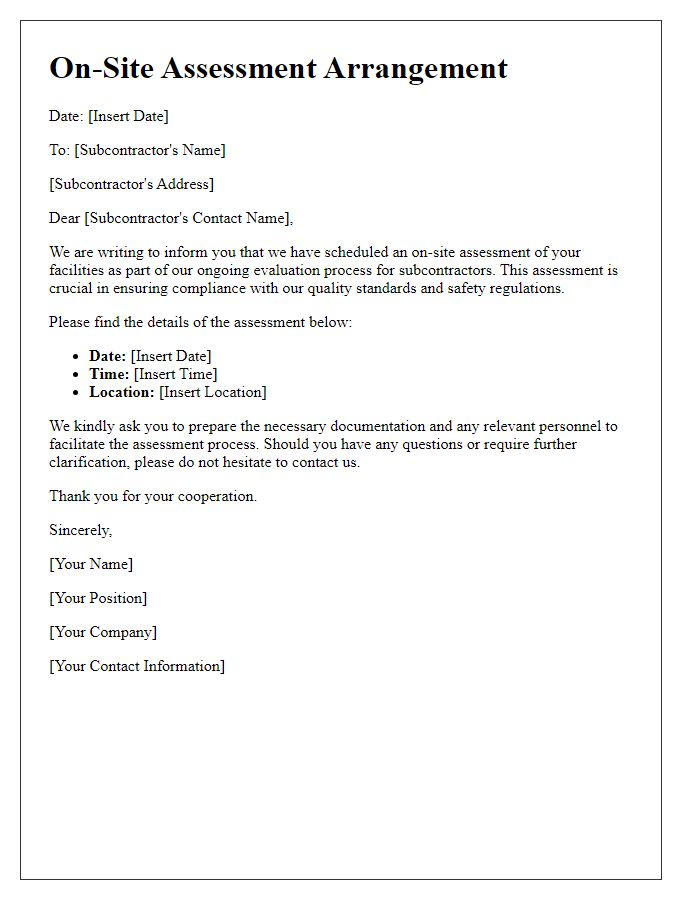
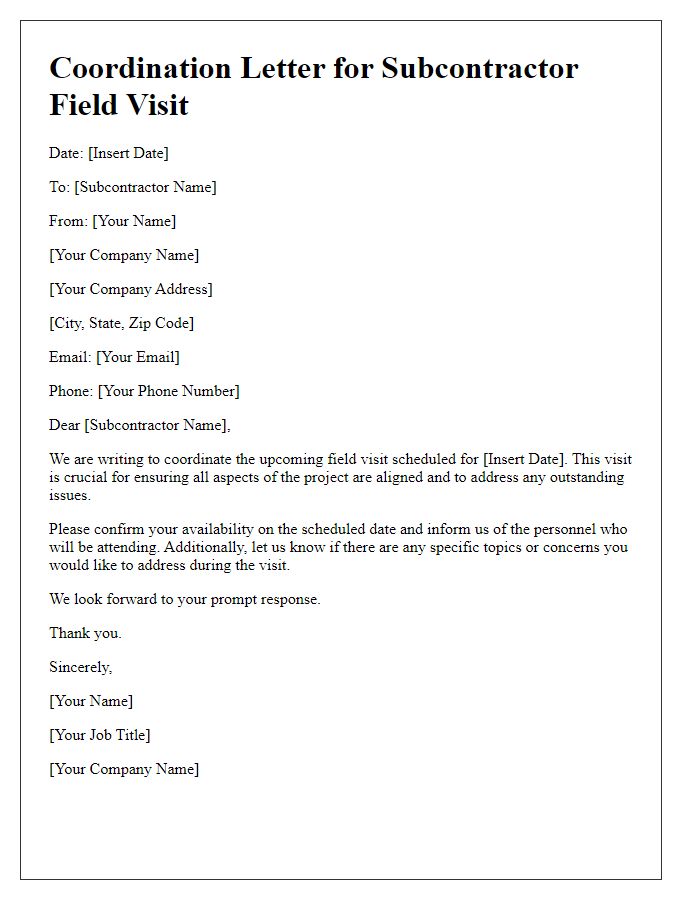
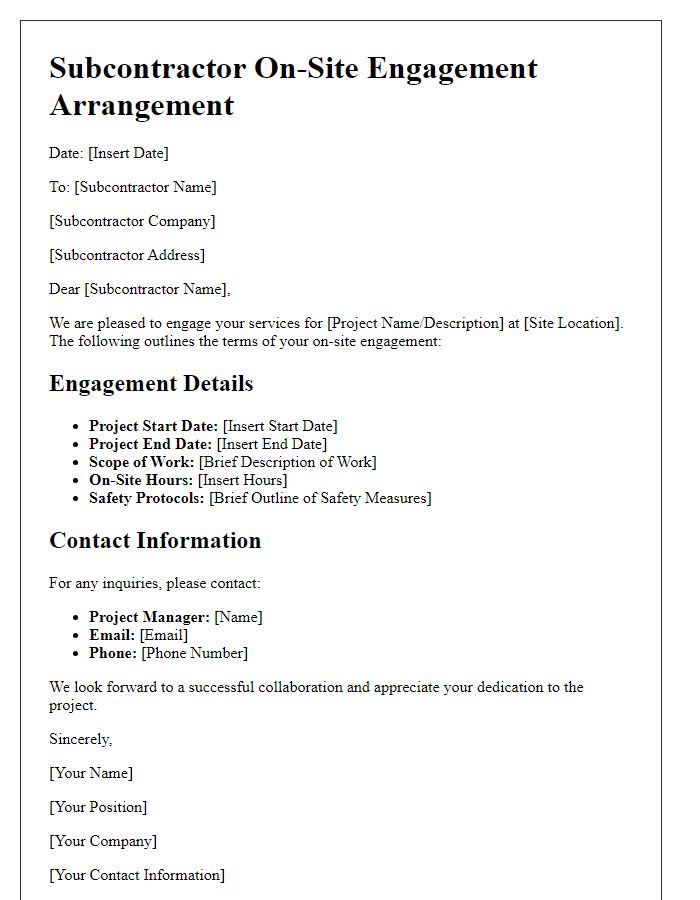

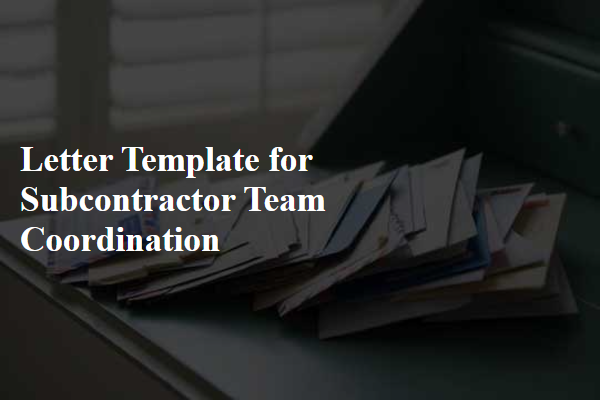
Comments